Automotive industry – Petrochemicals 24-04-2023 - Arhive
Automotive industry – Petrochemicals
-Petrochemicals – Polymers -Naphtha
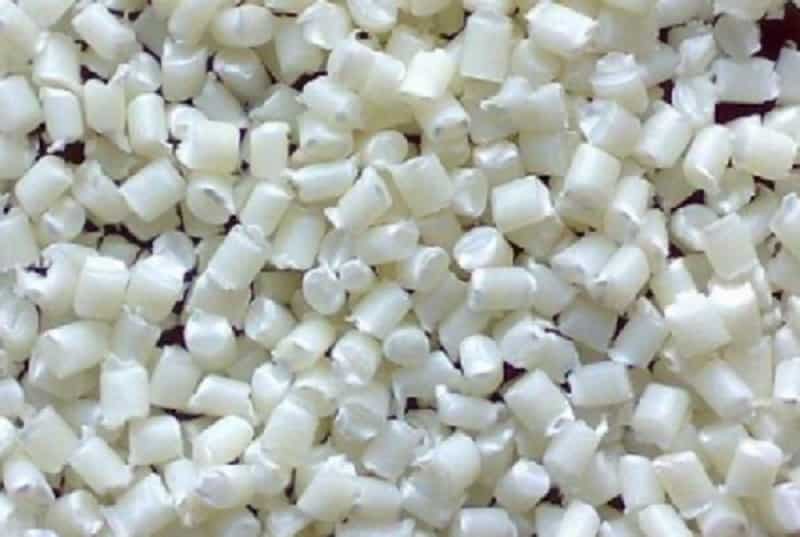
Crude Oil Prices Trend

Crude Oil Prices Trend by Polyestertime
-RadiciGroup announces the opening of its new factory in China
A 36,000m2 LEED Gold-certified facility, designed for environmental and social sustainability. The Group steps up its operations in Asia, to serve a local high performance polymer market in constant expansion
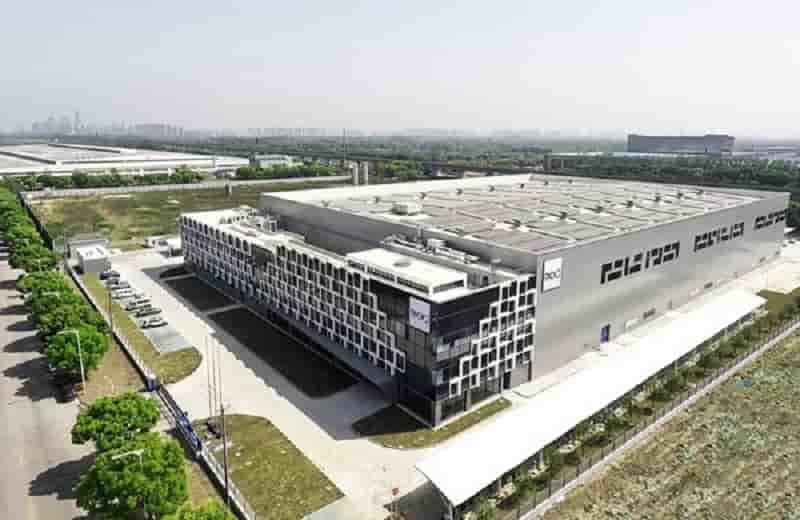
The new RadiciGroup industrial site in Suzhou, China has been officially opened. Designed to double capacity for manufacturing engineering polymers, the area will significantly step up the Group’s presence on the Asian market as a key player serving numerous sectors – from the automotive and electrical/electronics industries to consumer and industrial goods.
The Group has had production operations in China since 2006, when it first opened in a small factory in Jiangsu Province. In 2012 it moved to a larger site, to then start on the construction from the ground up of this new fully-owned facility, designed for future scalability, as required. Automotive industry – Petrochemicals

RadiciGroup invested €35 million in the development of the new complex, sited on 36,000 square metres of land, around half of which is occupied by production and research & development facilities. The rest houses offices, meeting rooms and communal areas, along with gardens and parking areas.
The state-of-the-art complex features the most advanced green building technologies available today, for which it is LEED Gold (Leadership in Energy and Environmental Design) certified. This international standard for high-performance green buildings incorporates parameters such as benefits for the environment and human health, the reduced consumption of water, energy efficiency and the use of environmentally-friendly building materials and solutions. Notable features of the Suzhou site include the installation of a continuous monitoring system to ensure the energy efficiency of the building, rooftop solar panels to produce renewable energy, and a rainwater recycling system to meet the water needs of the site. Automotive industry – Petrochemicals
The site has also earned GBL-2 Star certification, a Chinese standard for building sustainability, demonstrating the attention China focuses on green building solutions.
A choice perfectly in keeping with the RadiciGroup’s sustainability strategy, designed to build industrial and business growth on the responsible use of resources and a commitment to human rights, labour rights and individual rights.
“Working in harmony with the environment and people runs deep in our veins,” explains Angelo Radici, President of RadiciGroup.

Mr. Angelo Radici President of Radicigroup
“That’s been true ever since the 1940s, when we first opened in Italy as blanket manufacturers, to then diversify our operations and move closer to our customers around the world. Since starting up manufacturing operations in China more then fifteen years ago, we have grown immensely, together with the local market. Our materials are used by customers that in turn manufacture in China to satisfy the needs of local consumers. If years ago there was a shortage of skilled workers, today the Suzhou district is highly developed and people are skilled and specialised in various fields. In our case, that has also enabled us to retain our workers, drastically lowering turnover compared to the past, and so some of the solutions that we research and develop in China become benchmarks for the entire Group, thanks to our international network.” Automotive industry – Petrochemicals
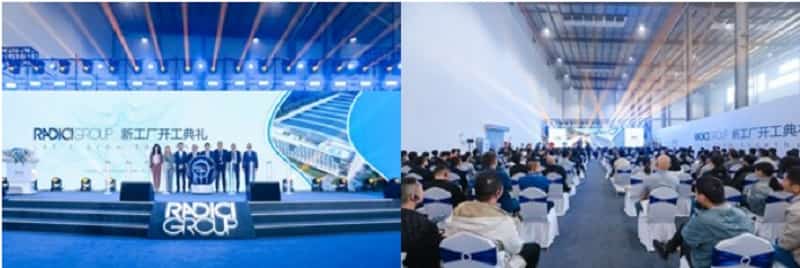
-Trinseo now offers mass-balanced ABS with 95% sustainable content
Bio-attributed material equivalent to fossil-based counterpart
Trinseo has added a new grade to its Magnum ABS family. Complementing the bio formulations of the material made with 60 and 80 percent bio-attributed content made available in late 2022, the company has now launched a version with 95 percent mass-balanced renewably sourced content. Automotive industry – Petrochemicals
“As customers focus on sustainable solutions, Trinseo continues to invest in technologies that offer an alternative to materials based on traditional feedstocks,” said Romulo Bouzas, product manager, Copolymers EMEA. Equivalent to their fossil-based counterparts with identical physical properties, Trinseo’s bio ABS materials can serve as drop in replacements and can be used with existing tooling and equipment under the same processing conditions, requiring no adjustments.
During polymerisation, fossil-based polymers are combined with renewable raw materials – an approach that has now enabled the creation of the new Magnum Bio ABS resin with 95 percent bio-attributed content, based on the ISCC mass balance approach. As a result, the material offers a 92% lower product carbon footprint (PCF). In the Bio 60 and Bio 80 formulations, fewer feedstocks are replaced, and the PCF reduction is 58% and 77% respectively.
Trinseo’s family of bio-attributed ABS are part of the new Trinseo CO2NET portfolio established earlier this year. These products all undergo a Product Carbon Footprint Assessment, a systematic cradle-to-gate analysis of the product’s potential environmental impact and ensures that their carbon footprint can be gauged correctly. Materials qualifying for the CO2NET product portfolio are required to generate at least 50% fewer carbon emissions compared to their fossil-derived counterparts, with the goal of lowering emissions to net zero carbon. Automotive industry – Petrochemicals
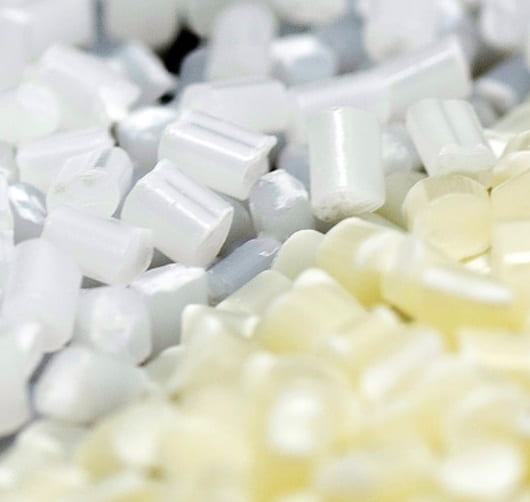
-First biodegradable fusible cotton shirt interlining
Freudenberg’s new 46xx range helps reduce environmental impact and supports customers in achieving their own sustainability objectives.
Freudenberg Performance Materials Apparel (Freudenberg) has reached another milestone in the development of sustainable textile solutions, launching the apparel industry’s first biodegradable fusible cotton shirt interlinings range 46xx.
With this innovation, the world’s leading specialist in woven, knitted, weft and nonwoven interlinings reduces its impact on the environment and supports customers in achieving their own sustainability objectives. In Asia, the series is marketed under the name 42xx series. Automotive industry – Petrochemicals
Hohenstein approved
The new Freudenberg fusible interlinings for shirts and blouses have been developed in such a way that they are harmless to people and the environment at the end of their life cycle. Germany’s independent Hohenstein Laboratories performed biodegradation tests on the 46xx series, based on the Hohenstein method which draws on DIN EN ISO 11721-2:2003 and EN ISO 846, and approved it as biodegradable and ecotoxicologically harmless. The tests by Hohenstein showed no negative effects on either the germination of garden cress or on earthworms in the acute toxicity test.
Energy-saving interlining
The new biodegradable shirt interlinings also show great potential for energy saving, as the fusing can be performed at a low temperature. Concretely, this means that the resulting temperature between the upper fabric and the shirt interlining during fusing is only 127°C which is significantly lower than the commonly used temperature of 143°C.
Certified to OEKO-TEX STANDARD 100 Class II for successfully testing for no harmful substances, the shirt interlinings are washable at up to 40°C and resistant to dry cleaning. Freudenberg further proved in washing and degradability tests that the interlining is superior to conventional products in terms of quality.
In addition, it has also passed all ecological-toxicological tests and is a perfect end-of-life cycle solution. Automotive industry – Petrochemicals

-Dimethyl Terephthalate Market is Expected to Surpass Revenues Worth USD 1.2 Billion by 2033
A recent market research analysis by Persistence Market Research estimates that Dimethyl Terephthalate Market sales will reach US$ 814 million globally in 2022. By the conclusion of the projection period, the market is expected to be worth US$ 1.2 billion, with a predicted CAGR of 21.3% from 2023 to 2033. Between 2023 and 2033, the market for dimethyl terephthalate in the food and beverage industry is expected to grow at a CAGR of more than 3.2% and be very profitable.
Dimethyl Terephthalate (DMT) is a chemical compound that is commonly used as a raw material for the production of polyethylene terephthalate (PET) resins, which are widely used in the packaging, textile, and automotive industries. The global DMT market has been experiencing steady growth due to the increasing demand for PET resins in various end-use applications. Automotive industry – Petrochemicals
This research report aims to provide a comprehensive analysis of the DMT market, including market size, trends, drivers, challenges, and opportunities.
This research report is based on extensive primary and secondary research. Primary research involved interviews with industry experts, manufacturers, and stakeholders, while secondary research involved the study of various industry reports, journals, and databases. Market data and information were analyzed using statistical techniques, and the findings are presented in a clear and concise manner.
Market Trends
Increasing Demand for Sustainable Packaging: There is a growing awareness among consumers and industries about the need for sustainable packaging solutions. PET resins produced from DMT are known for their excellent recyclability, which makes them a preferred choice for sustainable packaging. As more companies and governments focus on reducing plastic waste and promoting circular economy principles, the demand for DMT for PET resin production is expected to increase. Automotive industry – Petrochemicals
Technological Advancements in DMT Production: Technological advancements in DMT production processes, such as continuous processing, improved catalysts, and energy-efficient methods, are driving the efficiency and sustainability of DMT production. These advancements are expected to result in improved yields, reduced energy consumption, and lower production costs, thereby positively impacting the DMT market.
Growing Demand for PET Fibers: The demand for polyester fibers, which are produced from DMT, is expected to increase due to the growing demand for textiles and apparel, particularly in emerging economies. Polyester fibers are known for their durability, versatility, and cost-effectiveness, which make them a preferred choice for various textile applications. The growing fashion industry, changing consumer preferences, and increasing disposable incomes are expected to drive the demand for polyester fibers, thereby impacting the demand for DMT. Automotive industry – Petrochemicals
Focus on Product Innovation: Key players in the DMT market are focusing on product innovations to enhance the properties and performance of PET resins and polyester fibers. For instance, there is a growing trend of developing bio-based PET resins from renewable sources, such as bio-based feedstocks and recycled plastics, to reduce the reliance on fossil-based raw materials and reduce the environmental impact of PET production. Such product innovations are expected to create new growth opportunities in the DMT market.
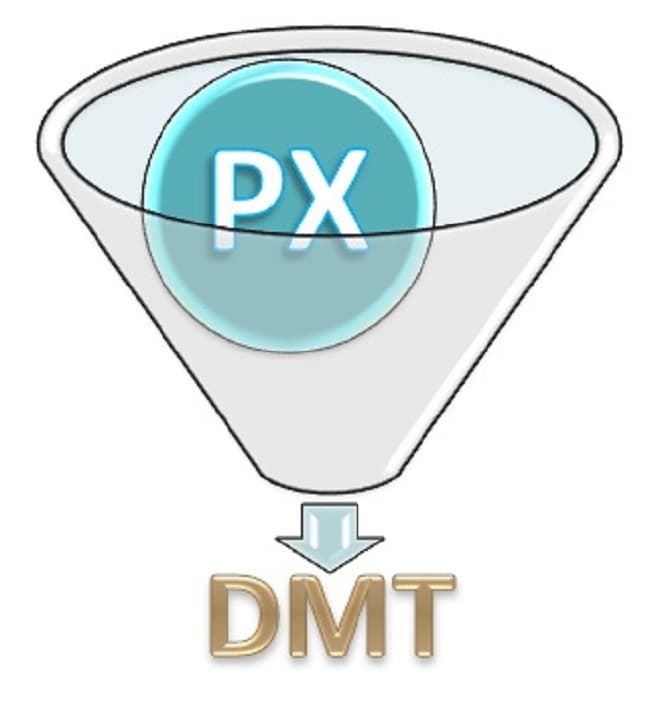
-Car live ticker: Tesla depends on VW in Germany
According to figures from the Association of automotive industry (VDA) around 3.2 million passenger cars were newly registered in Europe in the first quarter of 2023, 17 percent more than in the same period of the previous year. All five large individual markets grew, especially Spain (up 45 percent) and Italy (up 26 percent). In Deutschland the number of new registrations increased by 7 percent. Overall, the volume remains in Europa however 22 percent below the pre-corona year 2019. Automotive industry – Petrochemicals
In the USA passenger car sales rose in the first three months of the year by 8 percent above the 2022 value to almost 3.6 million units. were particularly popular Pick-ups and heavy-duty SUVs accounted for 79 percent of the total market turn off. The American market is also still 11 percent below the first quarter of 2019 in the first quarter.
While the US and Europe gained demand for new cars shrank in China. Around 5.1 million new registrations after three months correspond to one 7 percent decrease. Even a strong March with a plus of 23 percent could not compensate for the weak figures from January and February.

-Vietnam & Cambodia among Southeast Asia’s fastest-growing economies
- Vietnam and Cambodia are among the fastest-growing economies in Southeast Asia, with both countries projected to experience GDP growth of 5.8 per cent in 2023.
- Vietnam’s public debt is expected to remain the lowest among eight ASEAN members.
- Cambodia’s economy is expected to benefit from new trade agreements that promote inward investment and exports. Automotive industry – Petrochemicals
Vietnam and Cambodia are among the fastest-growing economies in Southeast Asia, as per several major organisations. Vietnam is projected to experience a 5.8 per cent growth in its gross domestic product (GDP) in 2023, positioning it in a tie for second place in the region with Cambodia, following the Philippines, the International Monetary Fund (IMF) said.
Vietnam’s public debt is also expected to remain the lowest among eight Association of Southeast Asian Nations (ASEAN) member countries. Projected to reach 6.9 per cent by 2024, Vietnam’s GDP growth is expected to be the highest among Southeast Asian countries. The country’s public debt is estimated to decrease to 31.3 per cent of the national GDP by 2028—the lowest in two decades. In terms of inflation, Vietnam is expected to reach 5 per cent and 3 per cent in 2023 and 2024, respectively, several local media reports said quoting the IMF. Automotive industry – Petrochemicals
The Asian Development Bank (ADB) said that Cambodia is anticipated to experience a GDP growth rate of 5.5 per cent in 2023 and 6.0 per cent in 2024. The country’s inflation rates are forecast at 3 per cent and 4 per cent in 2023 and 2024, respectively. Cambodia’s per capita GDP growth is expected to be 4.1 per cent in 2023 and 4.6 per cent in 2024.
The Economist Intelligence Unit (EIU) forecast that Cambodia’s real GDP growth will accelerate slightly to 5.3 per cent in 2023, after an estimated 5.1 per cent in 2022.

